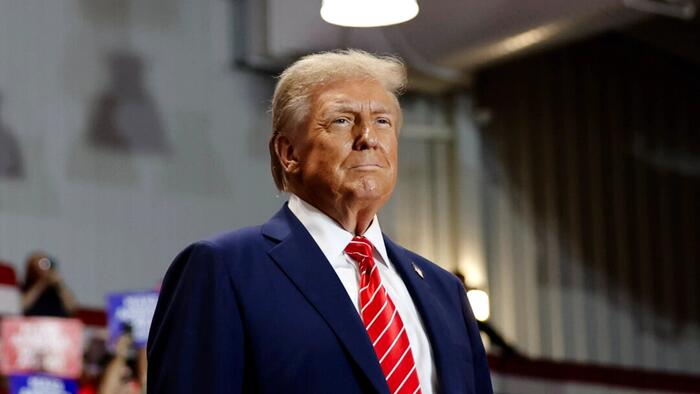On November 3, 2024, NBC aired a pre-recorded message from former President Donald Trump during a NASCAR race, following Vice President Kamala Harris’s live appearance on Saturday Night Live (SNL). Trump delivered a brief message, engaging sports fans and stressing the significance of the upcoming presidential election scheduled for November 5. He characterized the election as a pivotal moment in American history, urging voters to take action to “save” the country, which he deemed to be in dire condition. Trump warned of an impending economic depression and outlined a series of his intended policy actions, including border security, tax reductions, and combating inflation. The rapid juxtaposition of Trump’s statement against Harris’s SNL skit highlighted the contrasting approaches to the electoral process by both candidates.
Harris’s appearance on SNL involved a comedic sketch where she interacted with a version of herself, providing a humorous perspective on her campaign challenges and triumphs, particularly as a woman of color vying for the presidency. In her exchange with Maya Rudolph, who portrayed her, Harris expressed encouragement and confidence, reinforcing her unique position in the electoral race. Such media engagements are crucial for candidates to connect with younger, more diverse audiences, and SNL’s platform is notable for its ability to shape public perception and engagement with politics through humor and relatability.
The Federal Communications Commission (FCC) has regulatory oversight concerning political broadcasts, and Harris’s participation in a comedic skit raised questions regarding compliance with established rules governing political fairness and equal airtime for opposing candidates. Brandon Carr, an FCC Commissioner, publicly pointed out the potential violation of these regulations since Harris’s appearance on NBC occurred without the mandatory provision of equal airtime to her opponent, Trump. The FCC rules are designed to ensure that broadcasters do not use public airwaves to favor one candidate over another without offering all candidates an opportunity for comparable exposure.
As part of their compliance efforts, NBC notified the FCC concerning the duration of Harris’s SNL appearance, which they indicated was one minute and thirty seconds and occurred without charge. This notification underscores NBC’s cautious approach to navigating FCC regulations and maintaining an unbiased stance during the election cycle. The rules dictate that while a broadcaster must respond to requests for equal opportunities from competing candidates, they are not obligated to actively seek out their opposing candidates. This interpretation could inform future interactions and negotiations between candidates and media outlets during high-stakes electoral races.
Despite NBC’s efforts to align with FCC guidelines, the situation underscores the complexities surrounding media involvement in electoral processes. The airing of the candidates’ messages during high-viewership events such as NASCAR and NFL broadcasts directly impacts voter awareness, engagement, and the overall narrative leading up to the Election Day. Trump and Harris’s simultaneous broadcasts illustrate the ongoing competition for public attention and support, especially as the election approaches.
Ultimately, this incident reflects the interplay between entertainment and politics within contemporary American society, where the boundaries of each domain become increasingly blurred. The contrasting campaign strategies deployed by Trump and Harris highlight the significance of media platforms in shaping the electoral landscape, while the scrutiny from regulatory bodies emphasizes the importance of fairness and transparency in democratic processes. With the election imminent, the ramifications of such media appearances will be closely monitored as they potentially influence voter turnout and public sentiment in a polarizing political climate.

